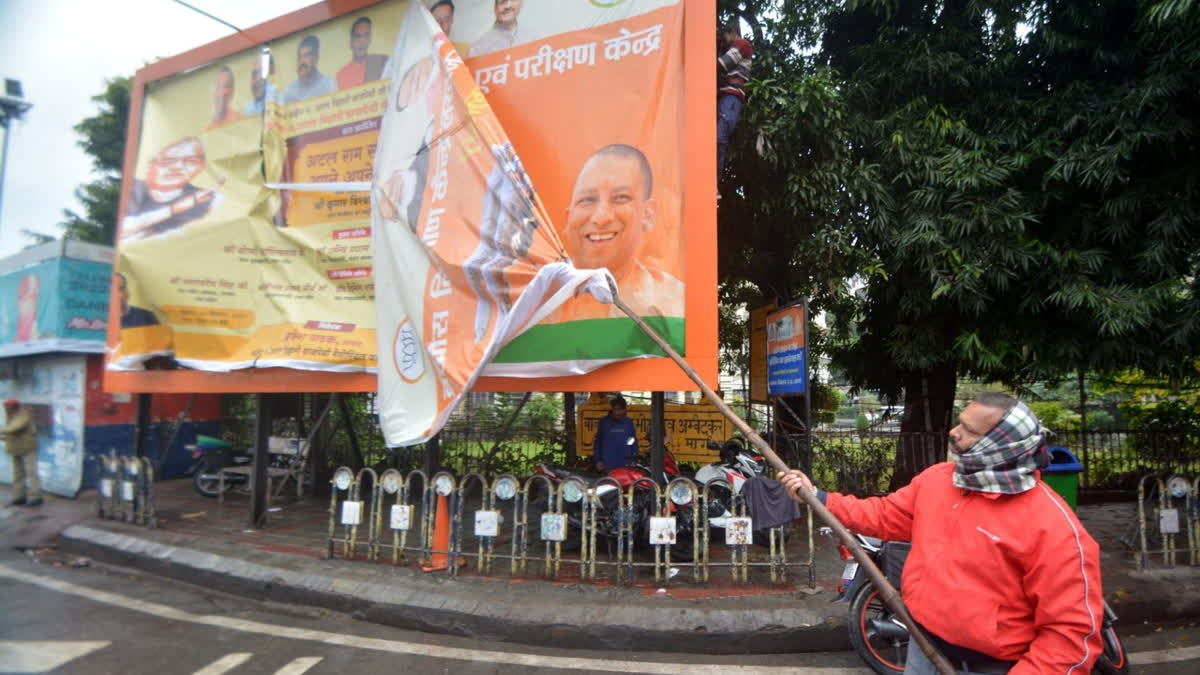Delhi : As India braces herself for the upcoming high-stakes Lok Sabha elections which will set the trajectory of the nation's growth for the coming five years, the Model Code of Conduct (MCC) has come into force with the announcement of the election schedule by CEC Rajiv Kumar on March 16. The MCC traces its origin back to the assembly elections in 1960 in Kerala and over the past six decades, it has transformed and evolved over the years, to ensure its effectiveness and enforceability.
While the MCC over the years has played a key role in conducting free, fair and transparent elections and in regulating its conduct, there have been several demands regarding its legal backing as it does not enjoy any statutory backing. In 2012, Parliamentary standing committee recommended that the MCC should be made a part of the RPA 1951, to give it a legal substance.
Views of the former CEC's: Talking to ETV Bharat, former CEC TS Krishnamurthy on this said that "MCC as its name suggests is only a code and not a law. The main purpose of MCC is to provide a level playing field. But, then enforcement of MCC has certain problems/challenges. For example - if there are serious violations of it, we can file an FIR and that will consume some time. And when a complaint is made against a person who belongs to the ruling party, it will have problems."
He further says that "Although, MCC is not toothless, is also endorsed by the Supreme Court but I've suggested that certain portions of MCC can be given a statutory recognition. So that the EC is able to at least impose a monetary penalty or disqualify a person for a period of three years. If limited amount of power is granted, then I am sure that it's effectiveness would certainly improve."
Similarly, another former CEC O.P. Rawat said that "It is more than enough. Everything is covered under the RPA 1951and in case there are serious violations, it will also lead to the accused getting charged under IPC which has now been amended. So, legal provisions are already there and I don't think that it needs a statutory recognition."
"Dr Ambedkar used to say that any constitution is as good or as bad as the people who implement it. MCC is good enough and has been evolving over the years. Our political class is very innovated and they bring in more challenges to us and therefore it gives us opportunity to build further on MCC", he added.
History of MCC: The journey of the MCC, as documented in the book "Leap of Faith" published by the poll panel says that it is a set of conventions agreed upon by all stakeholders during the elections. Its objective is to keep campaign, polling and counting orderly, clean and peaceful; and check any abuse of state machinery and finances by the party in power.
While, it does not enjoy any statutory backing but the commission is fully authorised to investigate any violation of the Code, and pronounce punishment. The Code has evolved over the last 60 years to assume its present form. It had its origin during assembly elections in Kerala, 1960 – when the administration tried to evolve a 'code of conduct' for the political parties.
During the general Lok Sabha elections in 1962 and the subsequent assembly elections, the poll panel back then circulated the code to the respective (recognised) parties and it subsequently gave good results as the political parties by and large followed the code.
MCC was first issued by Election Commission of India under the title of ‘Minimum Code of Conduct’ on September 26, 1968 during the Mid-Term Elections 1968-69 and was further revised in the following years of 1979, 1982, 1991 and 2013.
A document titled, “Role and Responsibilities of Political Parties during Elections: An Appeal to Political Parties for the Observance of a Minimum Code of Conduct during Election Propaganda and Campaign”, determining the standard political behaviour, was prepared by the poll panel during the midterm general elections of 1968 and 1969.
It was finally in 1979 when the commission in a conference of political parties, consolidated the code by adding a section monitoring the conduct of “parties in power”, which was aimed at preventing any misuse of power.
Legacy of T.N. Seshan: It was during the tenure of former CEC Seshan which proved to be a watershed event in the transformation of MCC. On December 12, 1990 T.N. Seshan, who had earlier been the Cabinet Secretary, was appointed as the Chief Election Commissioner. His appointment is perceived as an important development in the annals of the Indian elections.
The legacy of TN Seshan reminds the nation the power of an effective administrator who does not hesitated or feared to toe the line in front of the political leaders and who never hesitated to take tough decisions. His tenure saw the poll body becoming a multi-member body and also witnessed Commission becoming more pro-active to ensure the observance of MCC.
Read More



